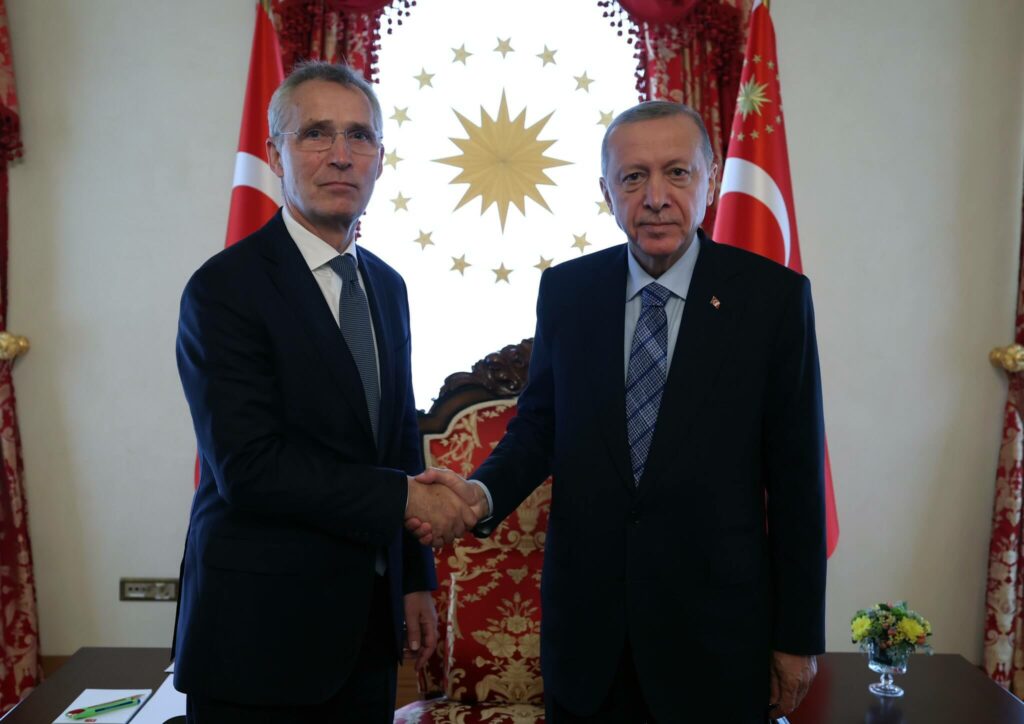Outgoing NATO chief Jens Stoltenberg highlighted Turkey’s importance, among other NATO members, for the security of Europe, in a farewell speech in Brussels on Thursday.
Stoltenberg, who had served as the NATO secretary-general since 2014, delivered a farewell speech at the Brussels office of the German Marshall Fund where he reflected on the challenges faced by NATO during his term in office such as Russia’s annexation of Crimea, the rise of the Islamic State in Iraq and the Levant (ISIL), Russia’s full-scale invasion of Ukraine, growing competition with China, the coronavirus pandemic, more sophisticated cyberattacks and the increasing impact of climate change on security.
He said Europeans must understand that without NATO, there is no security in Europe and that 80 percent of NATO’s defense spending comes from non-EU allies.
Stoltenberg said it is not only about resources but also about geography as he listed Turkey as among countries important to Europe’s security.
“Without Türkiye in the south, Norway in the north and the US, Canada and the United Kingdom in the west, it is impossible to envisage the security of the European continent,” said the outgoing NATO chief.
During his term in office, Stoltenberg avoided conflicts with Turkish President Recep Tayyip Erdoğan and managed to resolve a crisis over the NATO membership bids of Finland and Sweden, which faced opposition from Turkey.
Sweden and Finland applied in May 2022 to join the trans-Atlantic defense pact after Russia invaded Ukraine in February 2022 but faced unexpected objections from Turkey, which wanted them to take a tougher line against the outlawed Kurdistan Workers’ Party (PKK) and dissidents seen as “terrorists” by Turkey.
Ankara forced the northern neighbors to split up their applications after finding fault with Sweden and approving Finland after a few rounds of talks.
Finland became a NATO member in April 2023, followed by Sweden in March after Ankara lifted its objections through negotiations, which many said have taken place thanks to Stoltenberg’s leadership and efforts.
Stoltenberg also raised some eyebrows last year when he said he saw no problem for the alliance with Erdoğan’s support for the Palestinian militant group Hamas.
In remarks to the German DPA news agency in November 2023 shortly after Hamas launched an unprecedented attack on Israel on October 7, Stoltenberg said there could be different views among NATO members about Hamas and that it’s not a problem for the alliance.
He said that “this does not affect in any way what we do, because we are not playing a role in that specific conflict.”
Unlike the EU and the US, which recognize Hamas as a terrorist organization, Turkey does not list Hamas as a terror group, with Erdoğan frequently meeting with its members and describing the group as “liberators” fighting for their homeland.
After a decade at the helm of NATO, Stoltenberg will be replaced by the Netherlands’ Mark Rutte as of October 1.
In his speech Stoltenberg also said although the alliance had been described as divided, obsolete and braindead at the beginning of his term, it has undergone their biggest transformation in a generation, becoming “strong, united and more important than ever.”

